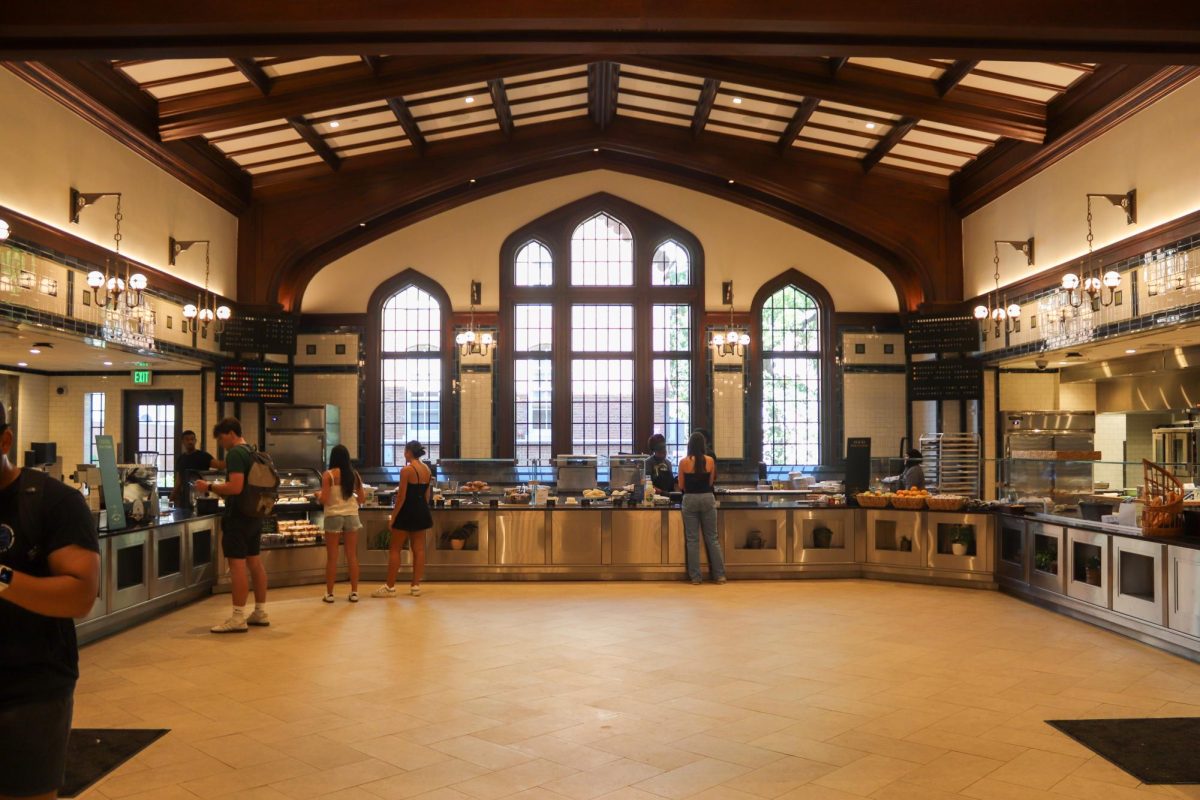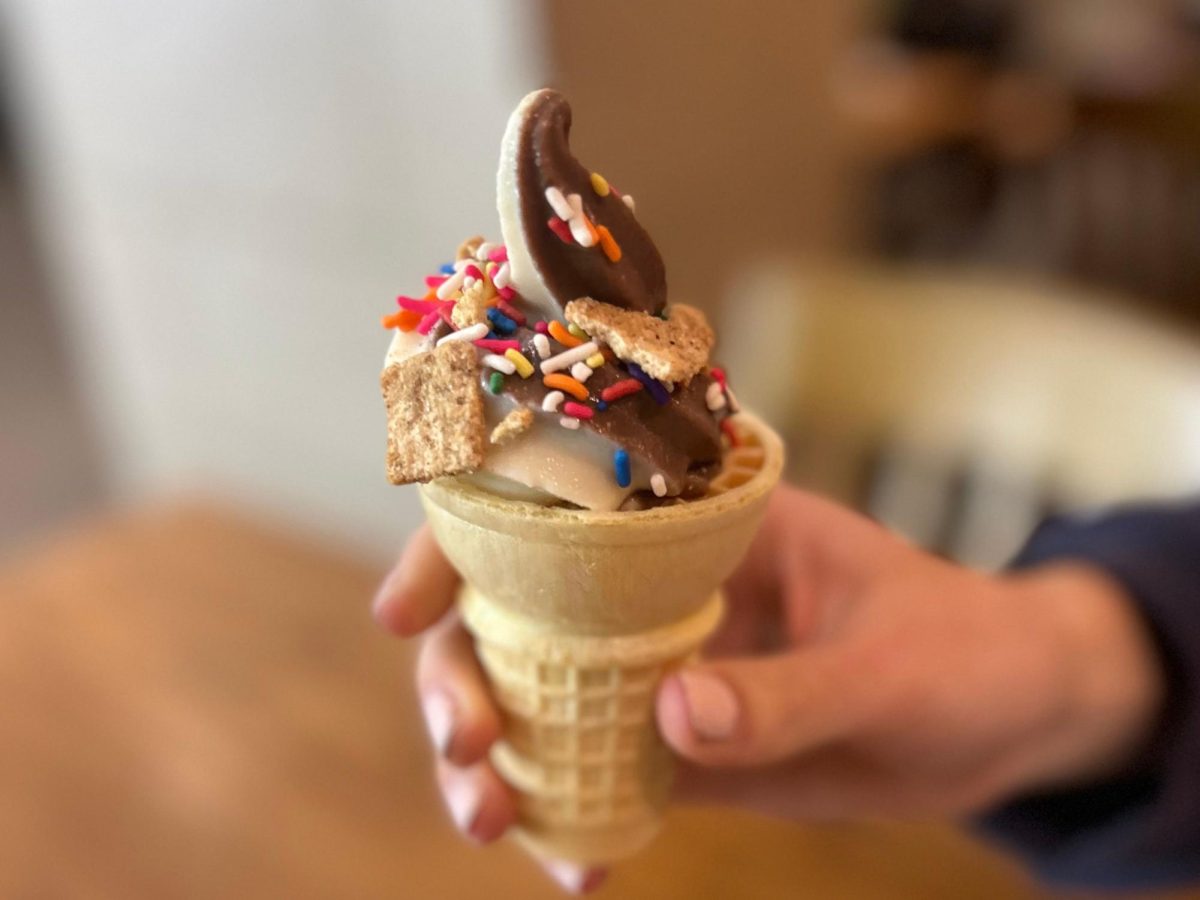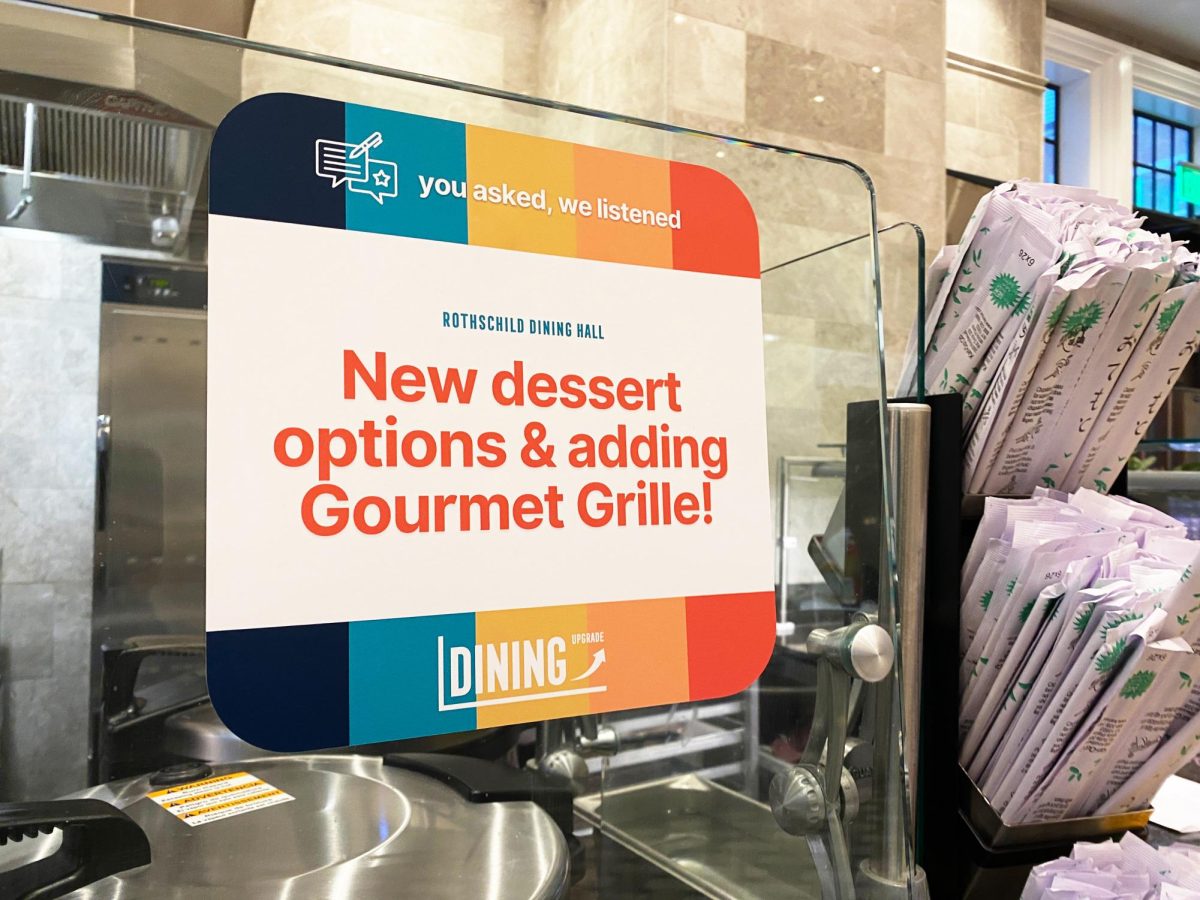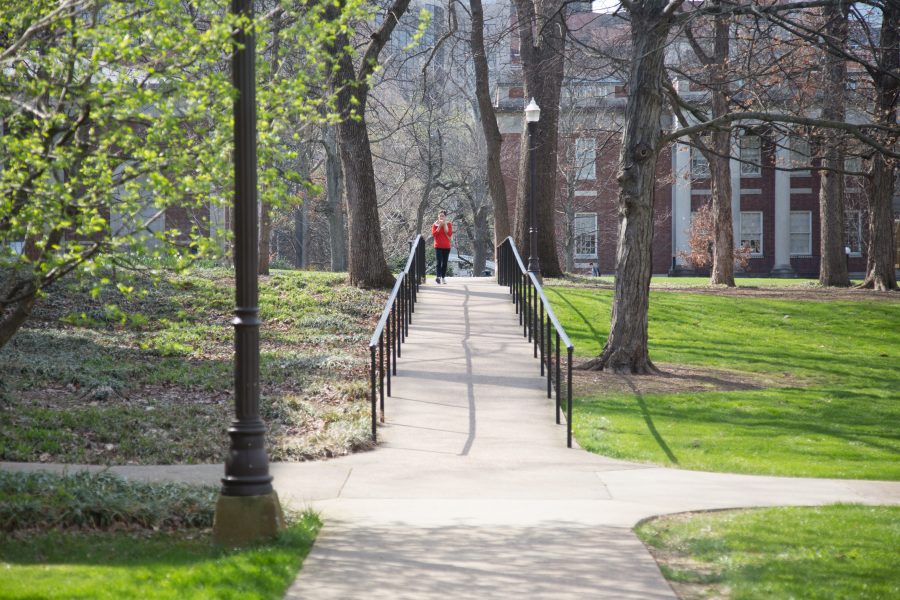Stepping onto Vanderbilt’s campus means stepping into a sustainable ecosystem, a world replete with paper straws, reusable water bottles and LEED Certified buildings. Students are constantly pushing the environmental envelope through initiatives like Students Promoting Environmental Awareness and Responsibility (SPEAR), Vanderbilt Green Fund and the recent DivestVU/Dores Divest protest. We spoke with three student environmentalists for an insider glimpse of sustainability at Vanderbilt, scoring some practical tips along the way.
Ellie Miller: Environmental impact, from ASB to Antarctica
A triple major in Earth and Environmental Sciences, Environmental Sociology and Communication of Science and Technology, junior Ellie Miller’s ultimate ambition is to work for the National Park Service or the US Forest Service. A lifelong outdoors enthusiast, her childhood memories are peppered with invigorating adventures in national parks. When a high school trip to witness Iceland’s iconic glaciers brought her face-to-face with climate change, Miller knew there was no turning back from her environmental convictions. Her next big adventure will take her to Antarctica, where she will join Vanderbilt’s Antarctic Research Team for the 2021 Field Season to study glacial flow in the McMurdo Dry Valleys.
“My childhood always revolved around the outdoors,” Miller said. “A lot of our family vacations were to national parks. Even from a young age, I found a lot of peace in nature, and immediately I knew I wanted to have a career oriented around that outside world.”
Here are Miller’s tips for incorporating sustainability into Vanderbilt student life:
Alternative Spring Break
For students seeking an immersive introduction to environmental causes, Miller suggests trying out an Alternative Spring Break (ASB) trip. ASB offers several different trips under the theme “Animals and the Environment.” Miller participated in the Free Bird trip to Freedom, Indiana, where she volunteered at a sanctuary for formerly farmed animals.
“We got to spend a week working with rehabilitated farm animals that had been harmed in major meat industry facilities,” Miller said. “I’ve been vegetarian for about two years now, but getting to take a step into the vegan lifestyle and see the animals you’re actually impacting completely changed my perspective.”
Vegetarian dining
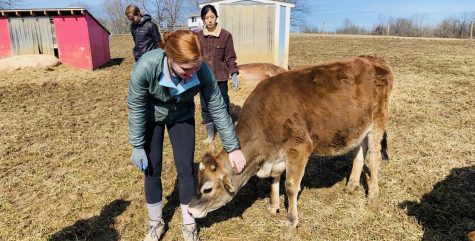
While a vegetarian or vegan lifestyle may not be palatable to all students, Miller suggests dedicating a weekly meal or two to cutting out meat, a major culprit behind accelerating climate change. Students can check the Campus Dining menu for vegetarian or vegan options, or stop by Grins, a 100 percent vegetarian and Kosher-certified campus favorite. For a night out on the Commodore Card, several Taste of Nashville restaurants offer tantalizing vegan and vegetarian options.
“Campus Dining actually does a fairly decent job of providing vegetarian meals,” Miller said. “Even just encouraging students to try a vegetarian meal or to be a vegetarian one day of the week can make an impact. There are a lot of great vegan and vegetarian restaurants around campus, and using these different resources that are a little bit less carbon intensive can make all the difference.”
Environmental academics
A Teaching Assistant for the Department of Earth and Environmental Sciences, Miller knows her way around a science classroom. She suggests students needing to fulfill a science and/or lab requirement consider taking Oceanography (EES 1030) or The Dynamic Earth: Introduction to Geological Sciences (EES 1510), along with their respective labs.
“Dynamic Earth really gives you a perspective on how the earth works,” Miller said. “I feel like people think on such small scales, and this is the first time in a classroom setting that you zoom back and look at huge Earth processes. How is this all working together? What kind of scale are we talking about in terms of Earth processes? You’re talking about structural geology, you’re talking about atmospheric science, you’re talking about traditional geology, earthquakes, volcanoes, the whole nine yards.”
For students seeking a deep dive into the mechanics of climate change, Miller suggests taking Global Climate Change (EES 3310/5310) with Professor Jonathan Gilligan. Not only will students walk away with an understanding of climate change from both a scientific and policy perspective, but they will also gain exposure to R, a commonly used software tool for statistical analysis.
“Half the semester is devoted to raw science, and half the semester is devoted to the policy side of climate change,” Miller said. “You talk about why it is such a bipartisan issue and what policies are in place now. You also learn about the future and what initiatives can continue to be put in place to strengthen climate change policy, especially on a global scale.”
Zahra Biabani: Thrifted Threads and @soulful_seeds
You may know her as senior Zahra Biabani, or you may know her as @soulful_seeds on Instagram, where she runs a successful sustainability account with 16.7k followers. From ethical consumption to climate gentrification, Biabani covers a vast array of environmental topics through informative reels, posts and infographics. Originally introduced to conscious consumerism through her activism against human trafficking, Biabani quickly recognized the interconnectedness of labor and environmental impact.
“I looked to conscious consumerism as a way to address a part of the labor trafficking issue,” Biabani said. “From there, I saw that there was another side to it which is not only how a product is made, but also the effects of its production process and disposal. I started in conscious consumerism because of the humanitarian side, and then I saw that there was also a [very connected] environmental side.”
Here are Biabani’s tips for incorporating sustainability into Vanderbilt student life:
Thrifting
A seasoned thrifter, Biabani helps newbies enter the world of secondhand fashion with her Style Consulting Service. While a significant share of media attention is devoted to thrifted fashion, Biabani advocates for a much broader definition of thrifting—not just clothing, but also furniture, cutlery, dishware and more. While COVID-19 precautions have complicated certain thrifting outlets, here are a few Hustler recommendations, along with a recap of the VSG Environmental Commitee’s 2020 Thrift Shop.
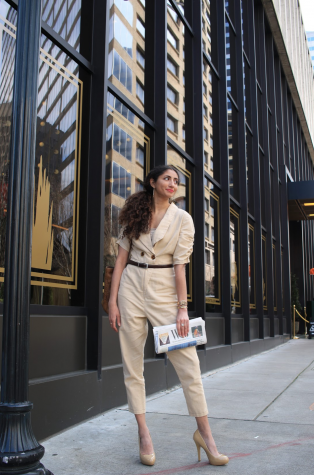
“There are a lot of things you can thrift or borrow outside of clothing, and I think that still hasn’t been popularized yet,” Biabani said. “Buying new is really not necessary for most things because there are so many products that have been manufactured. Use what you can, whether that’s Facebook Marketplace, stuff on the street that people don’t want anymore, or group chats with your friends. Goodwill has cutlery and plates and other similar items.”
Refill stores
From shampoo bottles to cleaning spray, a lot of our waste comes from a vicious cycle of disposable containers. Biabani cuts down on her waste footprint by skipping disposable containers and shopping at refill stores.
“There are two amazing refill stores in Nashville, but I know transportation can be a barrier,” Biabani said. “Sage Refill Market is walkable, especially from Commons, and it’s right by Belmont. You can bring in any container, and they will weigh it. Then you can fill it with any cleaning supplies, bath products or whatever you need, they’ll weigh that, take the difference, and charge you. I think making that switch is really beneficial, and it’s pretty cost effective as well.”
Reduced consumption
Sustainable products are on the rise, and unfortunately, so is greenwashing. Biabani prioritizes a financially inclusive approach to sustainability. The best sustainable practice is free—just buying less. At the end of the day, the less you buy, the less waste you generate and the less resources are consumed in the production process.
“I don’t think there’s much that you need to buy,” Biabani said. “Especially in college, there are so many things that are marketed as super sustainable that are just unaffordable. I don’t want anyone to feel the pressure that they need to buy certain things in order to be sustainable, because sustainability is inversely related to consumption. On average, if you’re consuming less, you’re making a big difference.”
Jessica Prus: Serving up sustainability, one fork at a time
Senior Jessica Prus grew up learning about sustainability alongside her ABC’s. Recycling, reusing old containers and donating old clothes were an integral part of her family’s lifestyle. While she initially encountered challenges trying to transplant sustainable practices from home to the confines of a dorm environment, Prus quickly found innovative ways to incorporate sustainability into her college lifestyle, from weeding at the Vanderbilt Community Garden to launching a bamboo cutlery initiative with SPEAR.
Here are Prus’s tips for incorporating sustainability into Vanderbilt student life:
Laundry
Laundry is a necessary (although sometimes annoying) part of college life. However, laundry can also be a significant source of energy expenditure, water consumption and chemical waste. In order to minimize the environmental impact of her weekly wash cycle, Prus has incorporated several sustainable laundry tactics.
“I try to put my clothes in the cold cycle, which uses less energy, and I also try to air dry them,” Prus said. “I know a lot of people that have a drying rack in their room. I don’t, I kind of just drape my clothes over different surfaces and let them dry, which saves energy from the dryer.”
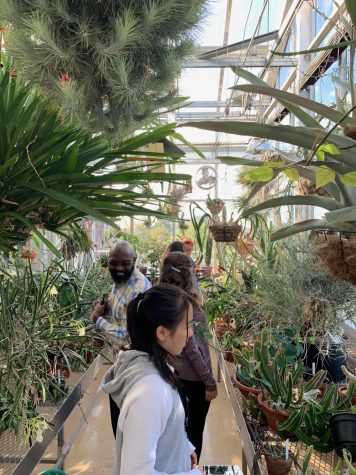
Green Fund
Some of Vanderbilt’s most innovative sustainability projects, like the hydration stations for reusable water bottles, were concocted by students and funded by the Vanderbilt Green Fund. The Green Fund has three main focus areas: Innovation Proposals that promote efficient campus utility consumption, Academic/Educational Proposals that raise awareness around environmental issues and Laboratory Proposals that increase the sustainability of lab operations. Prus sits on the joint VSG-SPEAR student committee that evaluates project ideas. Students can submit their Green Fund ideas here.
“You can submit an idea proposal and then get it funded and actually have it turned into a project on campus,” Prus said. “That’s how all the hydration stations were created. If you have any idea that you think could help make campus more sustainable, submit it to the Green Fund.”
Reusable bamboo cutlery
2020 ushered in a new campus dining experience, with to-go dining containers and massive dining tents becoming the norm. Prus was troubled by the massive amount of waste generated by disposable silverware. Inspired by previous initiatives, Prus reached out to SPEAR about providing students with reusable cutlery made out of bamboo, both a sustainable and cost-effective material. In February of 2021, through the joint effort of SPEAR and Vanderbilt Campus Dining, Prus’s idea came to fruition as bamboo cutlery kits became available for pick-up to all undergraduate students at Rand, Commons and Munchie Marts.
“[The bamboo cutlery initiative] introduced people to the idea of sustainability and that maybe they can get this type of bamboo utensil even in normal times,” Prus said. “Honestly, I know this year, a lot of us don’t have access to kitchens. I am in a single this year and I don’t have kitchen access, so I know it can be hard to figure out how to clean reusable utensils. But even if some students use it occasionally, I think that’s a win. That does eventually reduce waste, and the little things count.”




